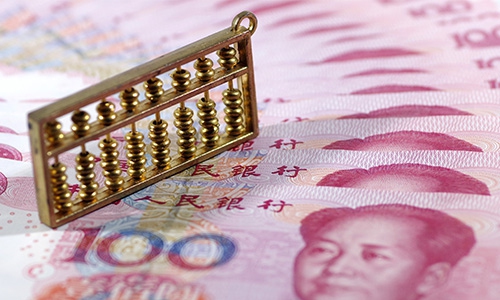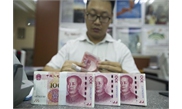
Renminbi Photo: VCG
Foreign institutions' holdings of yuan-denominated bonds increased for 32 consecutive months as of July, according to media reports, pointing to the internationalization of the yuan as continued opening of the domestic capital market expanded access for overseas capital.
As of the end of July, foreign investors' outstanding yuan bond holdings hit 3.38 trillion yuan ($520 billion), the highest level in nearly five months, according to Chinabond.com, the official website of China's bond market.
Foreign institutions increased their yuan bond holdings for 32 consecutive months, the Economic Daily reported on Monday. The net increase in overseas holdings of Chinese bonds in 2020 topped 1 trillion yuan, it said.
The internationalization of the yuan and the opening of the domestic capital market are making it easier for capital outside of the Chinese mainland to enter the market, leading an increase in holdings of yuan bonds, Dong Dengxin, director of the Finance and Securities Institute at Wuhan University of Science and Technology, told the Global Times on Monday.
Dong added that overseas capital mainly comes into the Chinese market through two ways - the offshore yuan markets and the dollar-denominated Qualified Foreign Institutional Investor (QFII) program.
China has designed special channels for offshore yuan to flow back into the domestic capital market, said Dong, noting that overseas capital can directly connect to China's bond market through the QFII program.
In 2019, China announced to scrap its QFII quotas, leading the absorption of foreign capital to grow rapidly, with more and more branches established in China by foreign institutions.
At the same time, the rapid and stable recovery of China's economy after the COVID-19 epidemic has strengthened the confidence of overseas institutions in the Chinese market with some even believing that holding yuan bonds is safer than holding US dollar bonds, said Dong.
The bubble risk in China's bond market is relatively low, and the issuance and trading are stable, the Economic Daily reported.
Global Times


